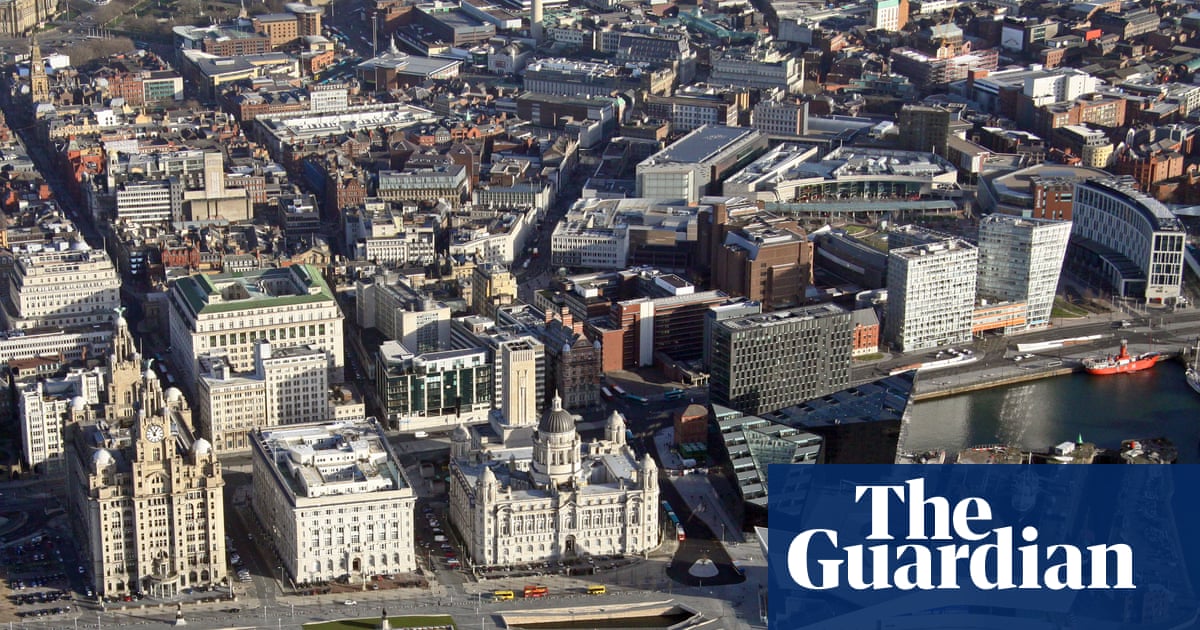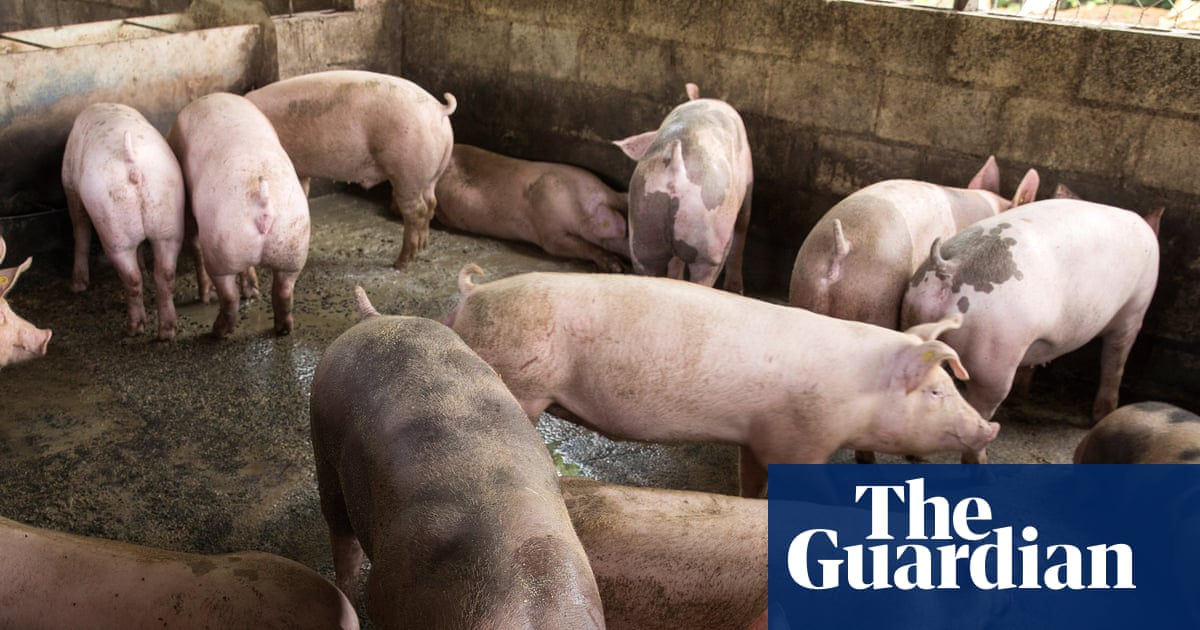When he steps out of the byelection campaign office opposite Caerphilly castle, the Plaid Cymru candidate, Lindsay Whittle, tends to hear a couple of different cries from passing motorists.
“Some of them shout: ‘Good luck Linds!’ I love that,” Whittle said. “It implies we’re old friends even though I may not know them personally.” Others are rather less positive. “They yell: ‘Stop the boats!’ You hear that all the time.
“But the boats are not an issue here. There are no boats with immigrants coming up the River Taff, the River Rhymney, the River Tywi. Ninety-seven per cent of people in this constituency were born in Britain.”
The people of Caerphilly go to the polls on Thursday to elect a new Senedd (Welsh parliament) member after the sudden death of Labour’s Hefin David.

Labour has long held the Caerphilly Senedd and Westminster constituencies but, unless the polls are wide of the mark, the party is likely to be beaten into third this week with either Plaid or Reform UK seizing the Welsh parliament seat.
Plaid appears to be picking up Labour votes disenchanted with the party’s performance both in Cardiff and Westminster while Reform hoovers up traditional Conservative voters and those impressed by its promises to end what it calls the other two parties’ “mass immigration agenda”.
Whittle, who has been a local councillor for half a century, wants to win for two reasons – to further the cause of his beloved Plaid and to keep out Reform.
“Labour is facing annihilation,” he said. “The Labour tree has finally died. The roots have gone and it’s dead.” He got on well with David. “He was a nice guy and everyone was shocked. I don’t want Hefin’s legacy to be Reform, to be hate.”
All this is not just a local issue. If Labour loses here it will be a huge blow for the party that has dominated politics in Wales for a century. It faces an even bigger challenge next year when full Senedd elections take place. If it loses control of the Welsh government – and Reform does well – it will be seen as a signal of political transformation in the UK.
Migration is not a devolved issue but it has been at the forefront of this byelection campaign. The issue dominated a BBC candidates’ debate when a local woman said a member of the family was among the 2.9% Caerphilly people not born in the UK and told the Reform candidate, Llŷr Powell: “I have never felt so unwelcome in my own home town as I do since your party came into Caerphilly.” She had felt compelled to tell her sons to stay away from some places. “I blame you for that,” she added.
Inevitably, the exchange led to the mother being targeted on social media. Some accused of her of being a plant, an actor, while others simply abused her and her views.

Hearteningly, there was some sympathy for her and on a Facebook page for residents of the Caerphilly county borough town of Ystrad Mynach, people movingly told how their families had arrived here, from Poland, from Italy, now from Ukraine.
One said: “I’m the son of a coalminer who’s the son of a coalminer and so on, proper valleys. My family exists, and exists here, because we have black grandparents who came here from the Jamaican plantations and cotton picking fields of the American deep south. They fought in wars for Britain, worked down our coalmines, worked in our local community groups. As much as it was a time of extreme racism, what does it say about us that they would have been less welcome here today?”
The Reform campaign office in Caerphilly is surrounded by businesses run by people with roots outside the valleys. One shop worker said he was surprised at Reform’s apparent popularity here. “Who is going to cut hair, work in the shops, serve takeaways, drive the taxis, keep the NHS going if it’s not immigrants?” he asked.
Another striking moment during the campaign was when the former Reform leader in Wales, Nathan Gill, admitted bribery charges relating to statements made in favour of Russia in the European parliament. But even this does not seem to have derailed the party’s campaign.
The Labour machine has been under pressure before in Wales but has always come through in the end. Some party strategists hope that there may be a “shy” rump of supporters who have kept their counsel but will be persuaded out on voting day.
after newsletter promotion

But in the final days of the campaign, the party has not seemed bullish and a well-placed party source struck a humble tone.
“Our teams have been out on the doors every day hearing the concerns of this community,” the source said. “We know that governments both here and Westminster are facing challenges and we’re not shying away from that.”
The source tried to move the focus to local issues, saying its candidate, Richard Tunnicliffe, had an action plan for each community in the constituency “from tackling antisocial behaviour in Lansbury Park [labelled as Wales’ poorest estate], to improving the high street in Bargoed [another of the county borough’s towns].”
Out and about, people do tend to talk about local issues rather than immigration – the threat of closure to local libraries, GP and hospital waiting lists, the cost of living.
Richard Gurner, the editor and publisher of the Caerphilly Observer, said: “People are fed up with declining public services. I think the feeling is that Reform and Plaid represent the potential for change.”
A poll released last week suggested Reform was leading the byelection race, with 42% of people saying they would support the party, followed by Plaid Cymru (38%), with Labour trailing on 12%.
The byelection has immediate implications for Labour’s ability to pass its 2026-27 budget. If Labour does lose Caerphilly, it will have only 29 of the 60 Senedd seats, and deals will have to be made to get the budget through.
Labour’s standing in Wales has dropped off a cliff since Vaughan Gething stepped down as first minister last year amid a donations scandal. His successor, Eluned Morgan, has tried – but so far failed – to draw a line between Welsh Labour and the increasingly unpopular UK party.
Polling for next year’s Senedd elections puts Plaid just ahead of Reform (30% to 29%) with Labour on 14% and the Conservatives on 11%.
Laura McAllister, a professor at the Wales Governance Centre that is part of the University of Cardiff, said it was possible that under a new voting system coming into place next year Labour could conceivably be left with fewer than 10 Senedd members.
She said: “There’s no doubt in my mind that we are seeing a fundamental realignment of Welsh politics. Labour is left in a very invidious position. I think we’re getting close to seeing the end of Labour’s hegemony in Wales.
“There’s a pretty horrific internal civil war in Welsh Labour. Stimulated, not started, by the Vaughan Gething affair, the party’s been in two camps ever since and there’s fatigue and frustration. It would take something of a miracle to see Labour turn this around.”

.png) 6 hours ago
5
6 hours ago
5

















































